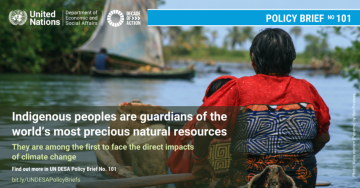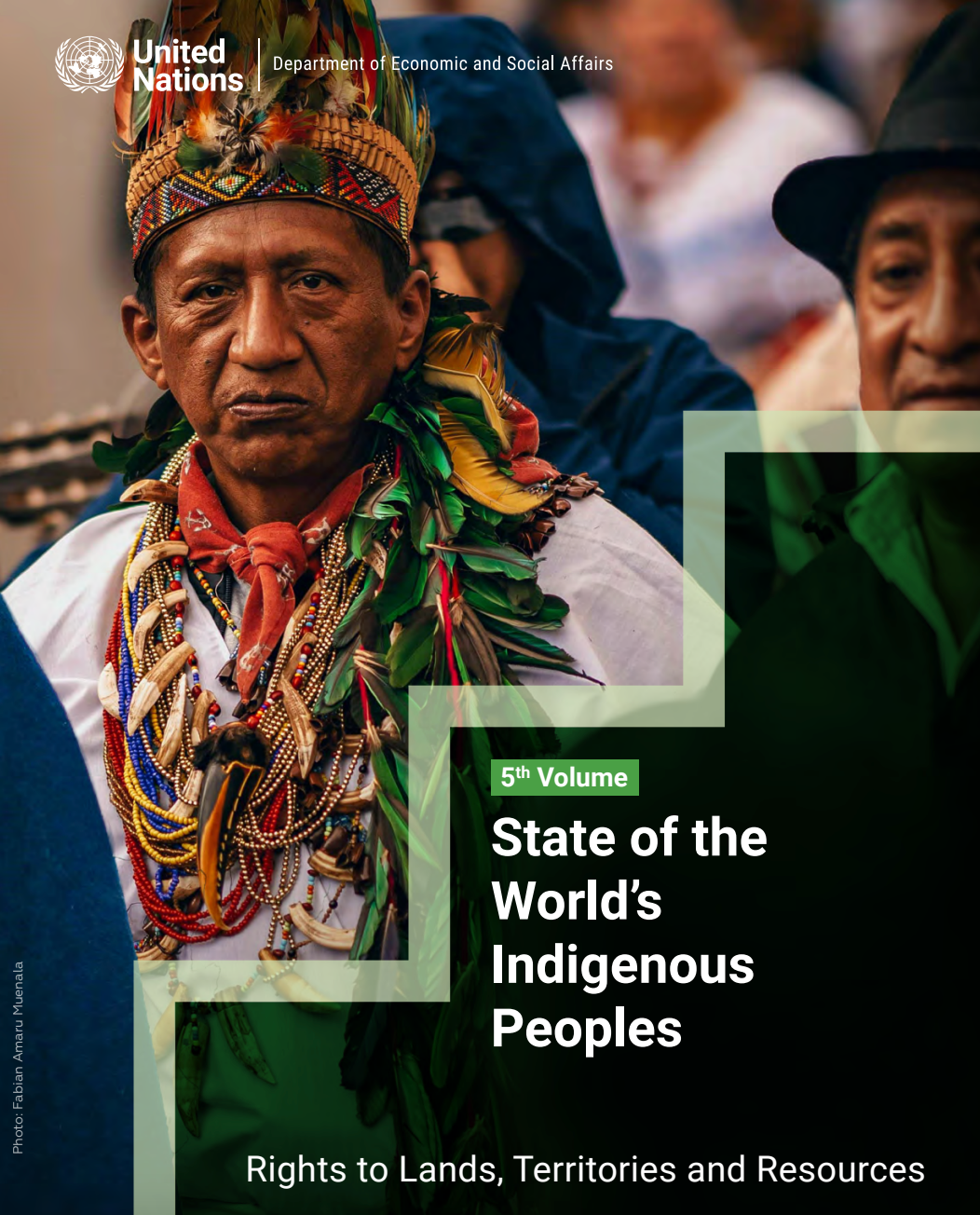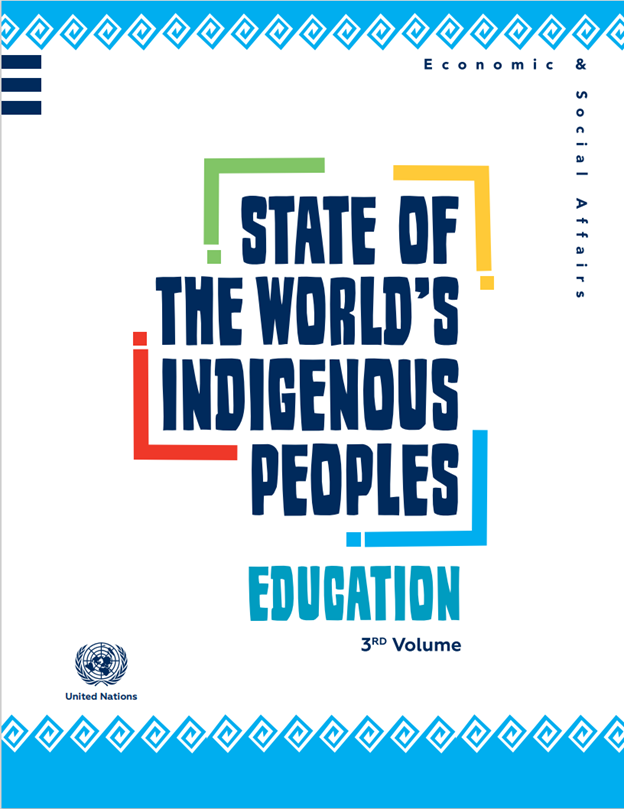Publications
Displaying 1 - 6 of 6
UN General Assembly Reports on Social Development |
Policy Briefs |
Threats to indigenous peoples’ livelihoods and traditional knowledge
Climate change is the greatest challenge facing humanity today. Its effects, however, are disproportionately distributed, in particular affecting vulnerable and socially marginalized population groups. Indigenous peoples are among the first to face the direct impacts of global warming on the ecosystems or landscapes they inhabit, owing also to their dependence upon, and close relationship with the environment and its resources. Examples of the negative impacts include diseases associated with increasing temperatures such as, vector-borne and water-borne diseases; drought and desertification leading to forest fires and the…
Flagship Reports |
Indigenous peoples’ relationship to their lands, territories and resources is at the heart of their identity, well-being and culture. Preservation of the environment, transmitted through traditional knowledge passed down through generations, is at the centre of their existence. As the world is increasingly recognizing the negative impacts of climate change and environmental degradation on health, food security and overall peace and security, the importance of indigenous knowledge and territorial rights is beginning to be more fully acknowledged by society at large.
The 2030 Agenda for Sustainable Development offers further opportunities to promote the rights of indigenous peoples to lands…
UN General Assembly Reports on Social Development |
Flagship Reports |
Recognizing the gaps in analytical research on the situation of indigenous peoples, the Permanent Forum on Indigenous Issues called for a report on the state of the world’s indigenous peoples. The Forum believed that this report will help dispel the myths and inconsistencies about indigenous peoples, and demonstrate their unique identity and traditions, as contributions to the world’s bio-cultural diversity. In response, DESA issued the State of the World’s Indigenous Peoples in 2009. This was the first global, authoritative report by the UN system to focus on indigenous peoples, with the 2014 second edition focusing on Indigenous Peoples’ Access to Health.
The third edition has been…
UN General Assembly Reports on Social Development |
 Welcome to the United Nations
Welcome to the United Nations


